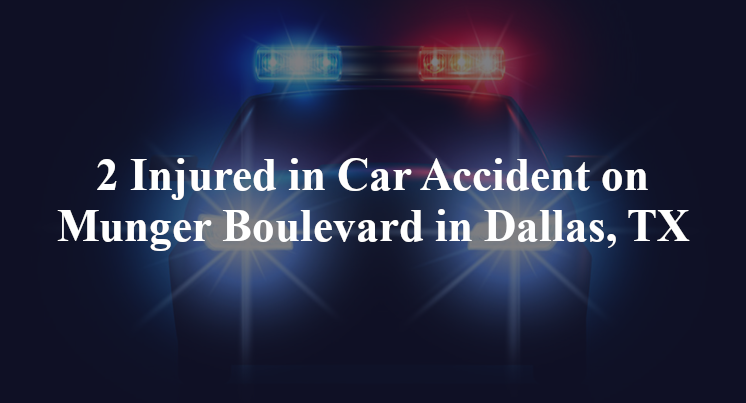2 Injured in Car Accident on Munger Boulevard in Dallas, TX
Dallas, TX — October 11, 2025, two people were injured in a car accident at about 4 a.m. in the 400 block of North Munger Boulevard.
A preliminary accident report indicates that a 2013 Ford Focus allegedly ran a stop sign while going east on Tremont Street and crashed into a southbound 2007 Honda Accord.

A passenger in each vehicle, a 17-year-old boy in the Ford and a 19-year-old woman in the Honda, were seriously injured in the crash, according to the report.
The Honda driver and another passenger suffered minor injuries, the report states.
The report lists the Ford driver as unknown.
Authorities have not released any additional information about the Dallas County crash at this time.
Commentary by Attorney Michael Grossman
When a crash sends young people to the hospital, it forces us to confront how suddenly lives can change. In those early morning hours, when the streets are quieter and visibility might not be ideal, it becomes even more important to understand exactly what went wrong and why. That kind of clarity doesn’t just help explain a tragic moment. It helps prevent the next one.
Did the authorities thoroughly investigate the crash? It’s concerning when an accident report leaves something as fundamental as the identity of a driver unknown. That omission raises real questions about the depth of the investigation. Did officers reconstruct the scene with any form of precision mapping? Was driver conduct reviewed in the hours leading up to the crash? In crashes with multiple passengers and serious injuries, it’s not enough to just take witness statements. A full reconstruction, tracking the path of each vehicle and pinpointing impact angles, can reveal whether something more complex happened. Without that level of work, crucial pieces of the puzzle might be missing.
Has anyone looked into the possibility that a vehicle defect caused the crash? With two vehicles of considerable age involved, it's reasonable to ask whether mechanical issues played a role. Did either car have faulty brakes, malfunctioning sensors or steering problems? Just because a driver may have run a stop sign doesn't rule out a mechanical failure as a contributing factor. For example, a stuck accelerator or a faulty brake booster could cause a vehicle to behave unpredictably, especially in a pressure moment like approaching an intersection. If those cars weren’t inspected after the crash, we may never know if something under the hood was part of the problem.
Has all the electronic data relating to the crash been collected? In 2025, most vehicles, especially ones built after 2010, carry engine control modules that can reveal speed, braking and steering inputs seconds before a crash. Phones may hold even more answers, especially if distractions or directions from navigation apps influenced what happened. If authorities didn’t secure that data promptly, it could already be gone. The same goes for nearby security or traffic cameras that might have captured the collision or the moments leading up to it. These tools don’t just fill in the blanks. They often correct the story.
Behind every crash is a mix of actions, decisions and sometimes overlooked clues. When key questions go unasked — about the quality of the investigation, the health of the vehicles and the availability of electronic proof — it becomes harder to separate fact from assumption. And that gap matters more than most people realize.
Key Takeaways:
- Leaving the driver's identity unknown raises doubts about the thoroughness of the investigation.
- Older vehicles should always be checked for mechanical issues after a serious crash.
- Without collecting vehicle and phone data, critical insights may be permanently lost.

*We appreciate your feedback and welcome anyone to comment on our blog entries, however all visitor blog comments must be approved by the site moderator prior to showing live on the site. By submitting a blog comment you acknowledge that your post may appear live on the site for any visitors to see, pending moderator approval. The operators of this site are not responsible for the accuracy or content of the comments made by site visitors. By submitting a comment, blog post, or email to this site you acknowledge that you may receive a response with regard to your questions or concerns. If you contact Grossman Law Offices using this online form, your message will not create an attorney-client relationship and will not necessarily be treated as privileged or confidential! You should not send sensitive or confidential information via the Internet. Since the Internet is not necessarily a secure environment, it is not possible to ensure that your message sent via the Internet might be kept secure and confidential. When you fill out a contact or comment form, send us an email directly, initiate a chat session or call us, you acknowledge we may use your contact information to communicate with you in the future for marketing purposes, but such marketing will always be done in an ethical way.